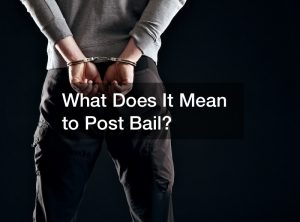When you create a disclaimer, you are essentially creating a contract between yourself and the person reading it. By doing so, you are protecting yourself from any possible legal action that customers or partners could take against you. In addition, by having a disclaimer in place, you show the person reading it that you have made every effort to protect them.
What is a disclaimer and what does it do
According to The Free Dictionary’s Legal Dictionary, a disclaimer “…is a defensive measure, used generally with the purpose of protection from unwanted claims or liability. A restaurant may disclaim responsibility for loss or damage to a customer’s Personal Property, or a disclaimer clause in a contract might set forth certain promises and deny all other promises or responsibilities.”
Disclaimers are often found in contracts, but they can also be found in everyday life. For example, the packaging on over-the-counter medications most likely has a disclaimer that states that you should not take the drug if you are pregnant or nursing since it could harm your unborn child.
Why your business needs disclaimers

A business needs disclaimers to protect themselves from any possible legal action and show the reader that they have made every effort to protect them as well.
A disclaimer is a defensive measure, it also works for protecting your company and keeping you safe from a legal standpoint. The best thing about disclaimers is that they are simple to set up and maintain to protect your company legally.
If something happens, you will be covered because of the disclaimer’s legalities. You always want to put in the time to ensure that everything is safe with your company by setting up contracts and disclaimers that will help prevent mishaps while providing protection all at once.
To set up a disclaimer, you can either hire an attorney or use a website that offers them to protect your rights. These attorneys and websites will not only help you set up your disclaimer, but they can also help you set up contracts and copyright laws to protect your company even more.
Disclaimers in action, an example of how they protect businesses
One example of the protection disclaimers provide is when you are at a restaurant. According to your contract with the server, they do not take responsibility for any damage or loss of personal property.
Another disclaimer is one found in SaaS enterprise agreements, where they might claim no responsibility for how their customers decide to use a piece of software. If a customer performs something illegal through the use of the software, the company’s developers are not legally liable for having created the tool that enabled them to do it.
Finally, the last example is how the FTC requires disclosure on any paid endorsement. If an Instagrammer, for example, is being paid by a company to post about their product, they must disclose that relationship to their followers. They must either verbally say it in a video or indicate that it’s an advertisement in the description and hashtag.
When should you use disclaimers
There are a few times when a company should use disclaimers. The first is when they are creating a contract. Disclaimers offer legal protections involving specific instances and situations pertaining to the business deal that the company would be cleared from.
Another instance that a company should use disclaimers is advertising on social media. For example, when you are writing an article for your company’s blog, you should insert a disclaimer at the bottom of it saying that all opinions expressed are those of you or your organization and this post does not reflect the opinion of any other company, including your own.
The importance of making sure your disclaimer is accurate and up-to-date with the law
It’s important to ensure that disclaimers are up-to-date with current law since the law changes frequently. As an example, the FTC updated the rules related to disclosures in social media posts a few years ago. If your disclaimer is not up-to-date, then it could be rendered useless in a legal battle.
It’s also important that disclaimers are accurate. This means ensuring that they are properly formatted and stating all of the pertinent information that will protect your company from any possible legal issues.
The bottom line is that you should use disclaimers whenever you feel it is necessary to protect yourself and your company. They are a simple way to provide that protection and can save you from a lot of legal trouble down the line. Always make sure that you have a good disclaimer policy in place to be covered when something goes wrong.





